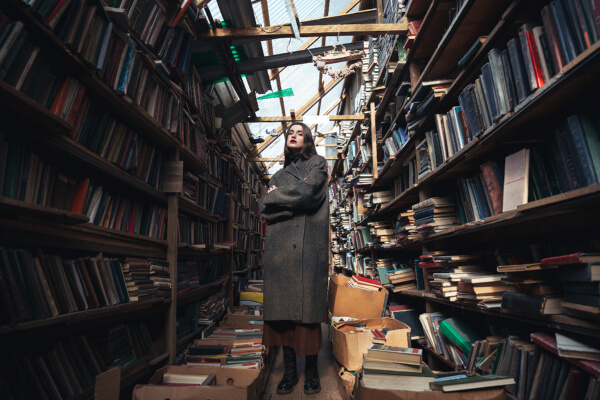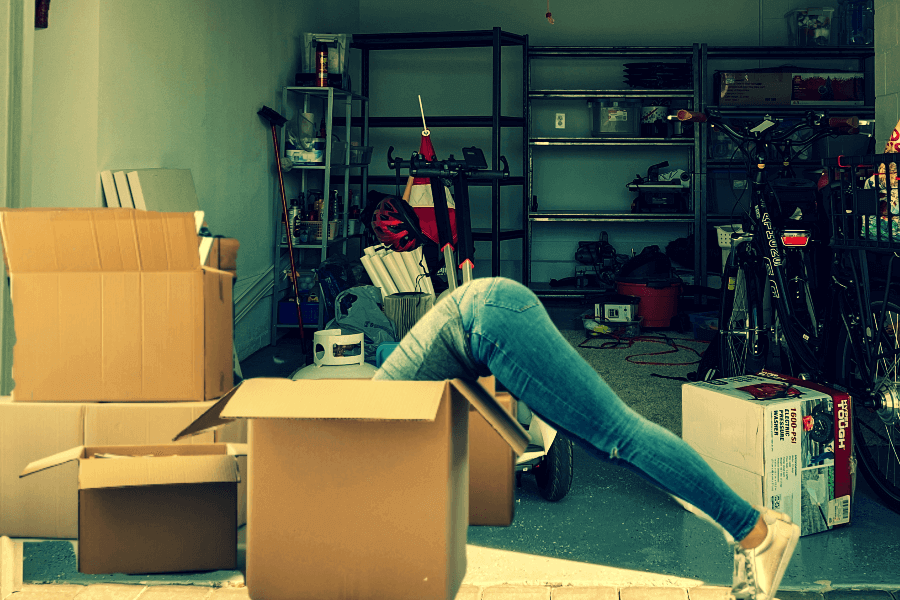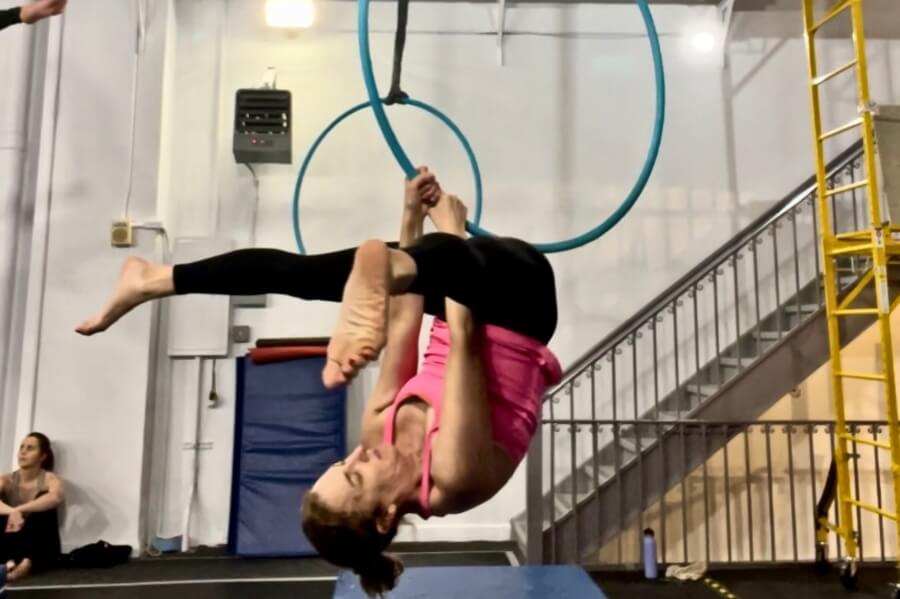Over the past few years, we’ve had plenty of reminders of our mortality, and as hard as it is to bear the toll of COVID, we can take a lesson from what we’ve come through—namely, that it’s a good idea to take care of all our stuff so our children or other family members don’t have to. That’s the idea behind something called Swedish Death Cleaning, a fantastically practical way of dealing with possessions and the subject of a surprisingly popular book called The Gentle Art of Swedish Death Cleaning: How to Free Yourself and Your Family from a Lifetime of Clutter.
Octogenarian author Margareta Magnusson urges you to ponder this squirm-inducing question: Who are you going to burden with all your stuff after you’re gone? I get the point, but that title gives me the willies. What is it with the Swedes and their gloominess, anyway?
‘I know it’s a first-world problem, but do you ever feel like having so many things just weighs you down?’
But I admit, Magnusson’s take on decluttering dovetails with what I’ve been thinking lately. As an aging Boomer somewhere between Medicare and death, I’m feeling the itch to purge and simplify. It’s an inversion of the nesting instinct I felt 30 years ago on the eve of motherhood. I have no intention of going gentle into that good night anytime soon, but I’m determined not to leave so much stuff for my kids to deal with.
“I know it’s a first-world problem, but do you ever feel like having so many things just weighs you down?” I ask my friend Rona.
“But I like my stuff,” she says plaintively.
“I read somewhere that women show a spike in stress hormones when they face household clutter,” I tell her. I describe the rationale for Swedish Death Cleaning. “The author swears it clears out psychic clutter too. You’ll feel better. Lighter. Able to focus.”
“No thanks,” says Rona with a shudder. “I plan to live a very long time so I can enjoy all my stuff.”
See, there’s that branding problem again. “Death Cleaning” gets quickly translated into “Crime Scene Unit” in many people’s minds. Maybe we should call it “Extreme Spring Cleaning” instead. A smidgen of baking soda, a spritz of Windex, a quick cruise through Costco to put a casket on lay-away. (Yes, they sell them.) You don’t want to die like an ancient Egyptian, entombed in a pyramid chock-full of household tchotchkes you’ll need for the afterlife. I bet if Ramses II were still around, he’d be binge-watching Hoarders: Buried Alive.
Read More: Now That You’re Stuck at Home, It’s the Perfect Time to Organize It
Swedish Death Cleaning: Decluttering Like There’s No Tomorrow (Because Maybe There Isn’t)

So I decided to dive in. First on my agenda: our basement, the final resting place for all the family junk no one has been brave enough to toss. Bags of baby clothes. Barrels of bedding. Bevies of bicycles. That’s just the stuff beginning with “B.” Armed with contractor-size trash bags, I unlatch the door to its murky depths and ponder its filled-to-the-rafters wretchedness. Then I freeze.
“Come on, Mom,” my son Jonathan coaxes. “I’ll talk you through it.”
Jonathan is a newly minted acolyte in the Cult of Decluttering. Every time he visits, he deposits another bag of stuff he no longer wants.
“Fine,” I say, “but why is it every time you decide to declutter your apartment, you have to clutter my house?”
Jonathan currently owns two dinner dishes. I’m storing the rest of the china set. “Don’t you need more plates for guests?” I wheedle.
“I don’t want things.”
The Next Generation Doesn’t Want Things
Jonathan is right on trend. According to Bloomberg, 78 percent of Millennials—compared to 59 percent of Baby Boomers like me —would rather pay for an experience than material goods.
Minimalism is in; tiny houses are all the rage. I get it: Clutter equals stress.
Clutter equals stress.
And speaking of Millennials, it’s a sad truth that they don’t want our stuff, so why am I hanging onto so much of it? Have I even unboxed—let alone used—my grandmother’s rainbow crystal stemware? The rusty wrought iron patio furniture? The Panini Press? Why are we saving three coffee makers?
I commit to being ruthless. For two hours, Jonathan and I empty out 23 cartons left over from my deceased father’s apartment. I follow Magnusson’s advice: “If you don’t love it, lose it. If you don’t use it, lose it.” I ask myself the ultimate decision-making questions: “Will anyone be happier if I save this?” Surprisingly, I find that most often the answer is no.
We sift, sort, and toss. We lug out a dozen cartons of bric-a-brac to donate. I call friends and manage to re-home one Zojirushi bread maker and a George Foreman Grill, but the pressure cooker is persona non grata, thanks to that recent episode of This Is Us, in which the leading man was offed by an exploding Crock Pot.
Read More: 5 to Follow: Top Sites to Get You Decluttered Already!
A New Viewpoint on Possessions
Digging through so much stuff isn’t just physical work, of course. It’s emotional archaeology too. You’re sifting through the artifacts of a lifetime. Death cleaning is a mindset, a permanent form of organization that will make your everyday life run more smoothly. It’s a journey and a destination. Magnusson teaches us that paring down isn’t a one-off, it’s an ongoing process—one I’m happy I’ve started.
The momentum of that first purge has motivated me for months now.
The momentum of that first purge has motivated me for months now. I’ve put my house on a diet, and it’s one I’m actually sticking to. I’m thinning out closets. Slimming down shelves. Even saying no thank you (mostly) to retail therapy. I’m buying fewer books and using the library more. Every time stuff sails out the door, I feel clearer-headed. Having fewer possessions not only frees up physical space, it creates mental space, too. It’s giving me room for new possibilities.
Oh, and there’s one other bit of wisdom from Magnusson that should help all of us streamline our stash of stuff. She warns: “There’s no sense in saving things that will shock or upset your family after you are gone. Save your favorite dildo, but throw away the other 15!”
And there you have it: All the motivation anyone needs to start cleaning like there’s no tomorrow.
***
Liane Kupferberg Carter is a nationally known writer, journalist, and advocate for the autism community. Her memoir, Ketchup Is My Favorite Vegetable: A Family Grows Up With Autism, is a winner of the 2017 American Society of Journalists and Authors Outstanding Book Award. Her articles and essays have been published in the New York Times, Washington Post, Chicago Tribune, Next Avenue, Brain Child Magazine and Full Grown People.
A version of this article was originally published in May 2018.





















0 Comments